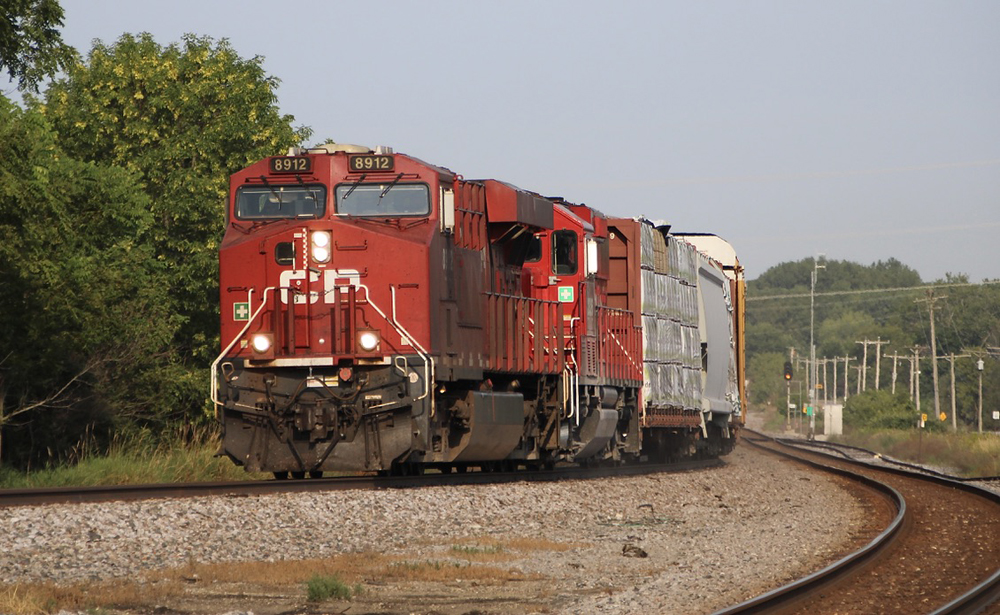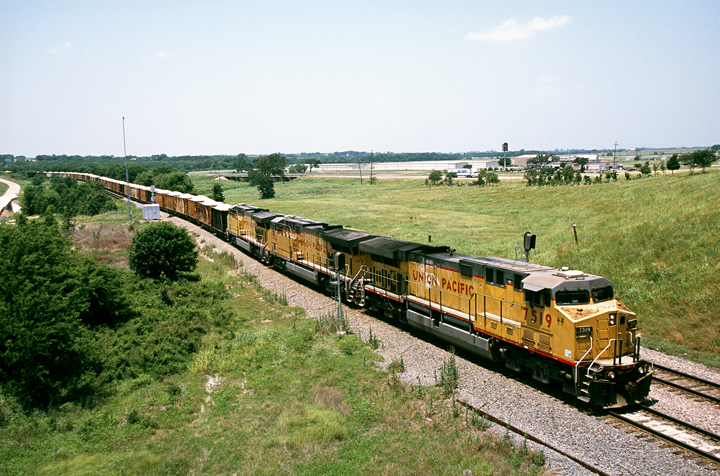
The announcement by Canadian National and CPKC that they plan to lock out members of the Teamsters Canada Rail Conference on Aug. 22 represents “an unnecessary escalation that goes against the principles of good-faith bargaining that CN and CPKC claim to uphold,” the union said in a statement this afternoon (Friday, Aug. 9)
The two railroads said today that they would lock out union members at 12:01 a.m. on that date unless they have reached a contract settlement or the union agrees to participate in binding arbitration. Aug. 22 is the end of a new cooling-off period set by the Canada Industrial Relations Board as part of a ruling today that said no activity would be required to move essential commodities in the event of a strike or lockout [see “Canadian rail strike could begin as soon as Aug. 22,” Trains News Wire, Aug. 9, 2024].
CPKC’s statement today said it will “conditionally withdraw” an offer for a time-based agreement and focus on a three-year contract “with competitive wage increases that are consistent with recent settlements with other railway unions and maintains the status quo for all work rules.” CN’s statement said it is “concerned that a negotiated deal is no longer possible without a willing partner,” that it has made four offers since the beginning of the year, and that the union “as not engaged meaningfully at the negotiating table.”
The union, in its afternoon statement, responded that “Contrary to the CPKC’s assertions, [its] latest proposals include significant demands for concessions, such as the removal of critical fatigue countermeasures. And contrary to CN’s claims, the company has not shown any flexibility or willingness to compromise at the bargaining table.”
Meanwhile, the CIRB ruling is drawing criticism from the ranks of Canadian industry, as well as widespread concern about its impact.
The Chemistry Industry Association of Canada issued a statement saying it is “disappointed” that the CIRB did not recognize that the railroads move essential goods, including safety-critical products from chemical manufacturers.
“Canada’s economy relies on rail to keep products and commodities moving. Chemicals needed for water treatment and sewage treatment are shipped by rail. Many of our members are captive to CPKC and/or CN – there are no viable alternatives for shipments,” said CIAC CEO Bob Masterson.
“The Canadian chemistry sector alone moves over 500 rail cars per day. It would require over 1,500 road-based tanker trucks to carry the same load. There is no Plan B due to the lack of availability of such trucks and drivers, the additional costs to move the products over long distances, and the fact that many chemistry products are restricted to movement on rail due to their hazardous nature.”
Some companies will only be able to operate one or two days without rail service, the association said; most will be shut down within a week.
The Canadian Manufacturers & Exporters, Canada’s largest trade and industry association, is calling for emergency meetings of the House of Commons Standing Committee on Transportation to address the potential stoppage. The group said in a statement that “a national work stoppage of any length will have a catastrophic impact on Canadian manufacturers and their workers. This is the most important issue facing the Canadian economy, and it is essential that all Members of Parliament hear directly from employers about the supply-chain chaos and economic costs that a nationwide rail stoppage will impose on our economy.”













The photo likely shows the old Milw. Rd. grade separation westbound at Elm Grove.
It’s your turn Mr. Trudeau to come out of fantasy land and figure this one out. You brag about your “skill” at working things out with the First Nations. Well here is your big chance to be in the limelight once more.
Perhaps if the railroad workers picket in Ottawa like the truckers did you will have them arrested, freeze their bank accounts, and have the RCMP show up at their door and ask questions about subversion? It seems to be in your toolbox.